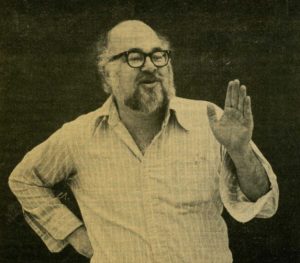Charles K. Megibben (1936-2010)
Charles K. Megibben was born in Lexington, Kentucky, on October 22, 1936. He received his B.S. degree from Southern Methodist University in 1959 and his Ph.D. in mathematics from Auburn University in 1963. During his graduate studies, he was funded by an Office of Naval Research (ONR) fellowship and a Woodrow Wilson fellowship. After a year as assistant professor at Texas Technological College from 1963 to 1964, he was an ONR postdoctoral research associate at the University of Washington for one year from 1964 to 1965. He then spent two years as an assistant professor at the University of Houston from 1965 to 1967 and was an exchange professor at the Université Montpellier in Montpellier, France, in the summer of 1967.
Megibben joined the Vanderbilt University Department of Mathematics as an associate professor in 1967. He was promoted to professor in 1975 and served in the department until his appointment as professor emeritus in 2005.
Megibben enjoyed a distinguished career as a research mathematician. His research dealt with the theory of abelian groups, a field of algebra. He was an internationally acknowledged leader in this field. He published many papers on the subject and was an invited speaker at several international conferences. He was the principal investigator on numerous National Science Foundation grants. His presence at Vanderbilt attracted many distinguished visiting scholars as well as graduate students. Ten students wrote doctoral dissertations under his supervision.
Charles Megibben is remembered as an engaging instructor. In both undergraduate and graduate courses, he was noted for the clarity, thoroughness, and liveliness of his lectures. He was also a master of written exposition. For each of the undergraduate courses that he taught most often, and for nearly all of his graduate courses, he would eschew the published textbooks and monographs. Instead, he prepared and distributed eminently readable lecture notes that would present the essential theory and illustrate it with a wealth of examples and illuminating comments. The mathematical and pedagogical insights in those notes influenced not only his students, but also some of his colleagues who would use the notes in their own courses.
Megibbens’ achievements in research significantly enhanced the reputation of the Department of Mathematics during a critical period when the department was first becoming known as a research center. Moreover, his reputation as a teacher grew over the years to a point where his classes were full to overflowing and students had to be turned away. The Department of Mathematics greatly benefitted from his talents and dedication in both research and teaching.
Megibben died March 2, 2010 in Nashville while undergoing heart surgery. He was 73.

